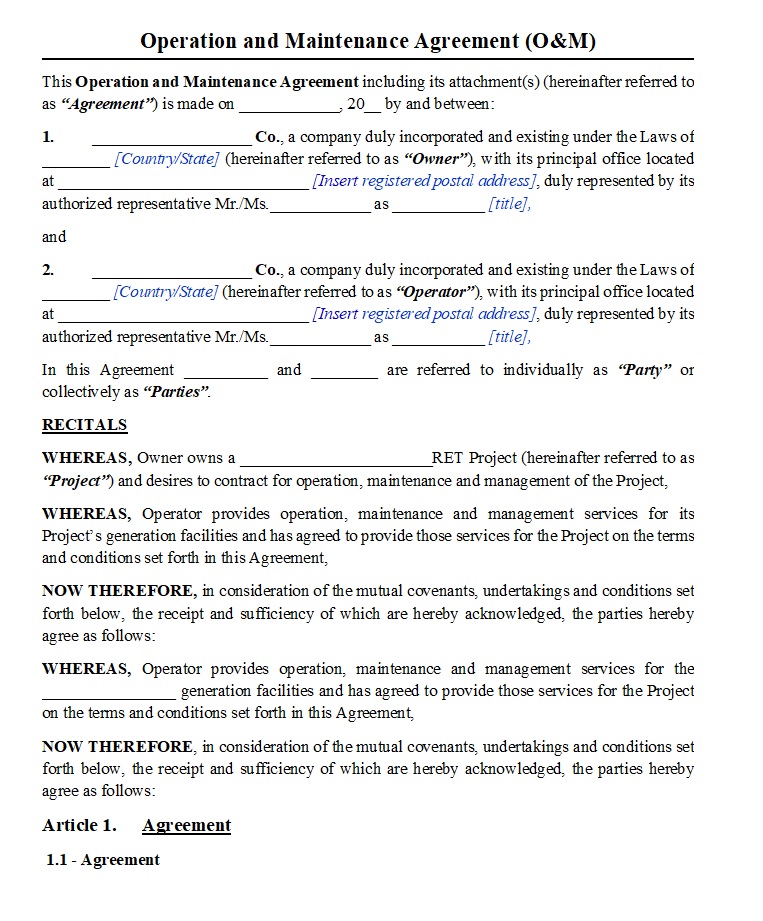Estimated reading time: 2 minutes
What Is an O&M Agreement?
An Operation and Maintenance Agreement (O&M) is a legal contract that outlines the responsibilities of an Owner and an Operator in managing and maintaining a project. This agreement ensures the project functions efficiently while meeting legal, technical, and operational standards. It sets forth both parties’ roles, rights, and obligations, covering aspects like budgeting, reporting, dispute resolution, and termination.
The Operator is typically a third-party contractor hired to oversee daily operations, maintain the facility, and ensure compliance with regulatory and safety guidelines. Meanwhile, the Owner retains control over significant decisions, financial approvals, and long-term project sustainability.

Responsibilities of the Operator
The Operator plays a vital role in keeping the project running smoothly. Their primary responsibilities include:
- Operations Management: Overseeing daily operations, equipment performance, and workforce coordination.
- Maintenance Services: Implementing preventive maintenance schedules and emergency repair plans.
- Regulatory Compliance: Ensuring all activities comply with environmental, safety, and legal standards.
- Reporting and Documentation: Maintaining records, logs, and submitting reports to the Owner.
- Financial Oversight: Managing costs within the approved budget and minimizing expenses.
Additionally, the Operator must act swiftly in case of emergencies to prevent operational disruptions and financial losses.
The Owner’s Obligations
The Owner remains responsible for major project decisions. Their obligations include:
- Providing project-related documents, permits, and financial support.
- Approving the Annual Budget and Operating Plan.
- Overseeing compliance with contractual and regulatory requirements.
- Monitoring the Operator’s performance through reports and audits.
The Owner must also ensure that the project has adequate funding and resources to operate efficiently.
Termination and Liability Considerations
The Operation and Maintenance Agreement includes specific conditions under which either party may terminate the contract. The Owner can terminate the contract if the Operator fails to meet performance standards or breaches legal obligations. Similarly, the Operator can terminate the contract if the Owner fails to meet financial commitments or violates agreed-upon terms.
To minimize risk, the agreement outlines liability limitations, indemnity clauses, and insurance requirements, protecting both parties from unforeseen financial or operational damages.
Check out more pages of our website for related content:
Access the Full Contract Directory Index
You can browse the complete alphabetical list of all commercial, financial, and project-based contract templates by visiting our A–Z Contract Index.
References
- Legal Guidelines for O&M Contracts
- ISA – Industrial Maintenance Best Practices
- U.S. DOE – Operations & Maintenance Best Practices Guide
- EFNMS – Maintenance Definitions and Principles
- Asset Management Council – Planned Maintenance Concepts
has been added to your cart!
have been added to your cart!



